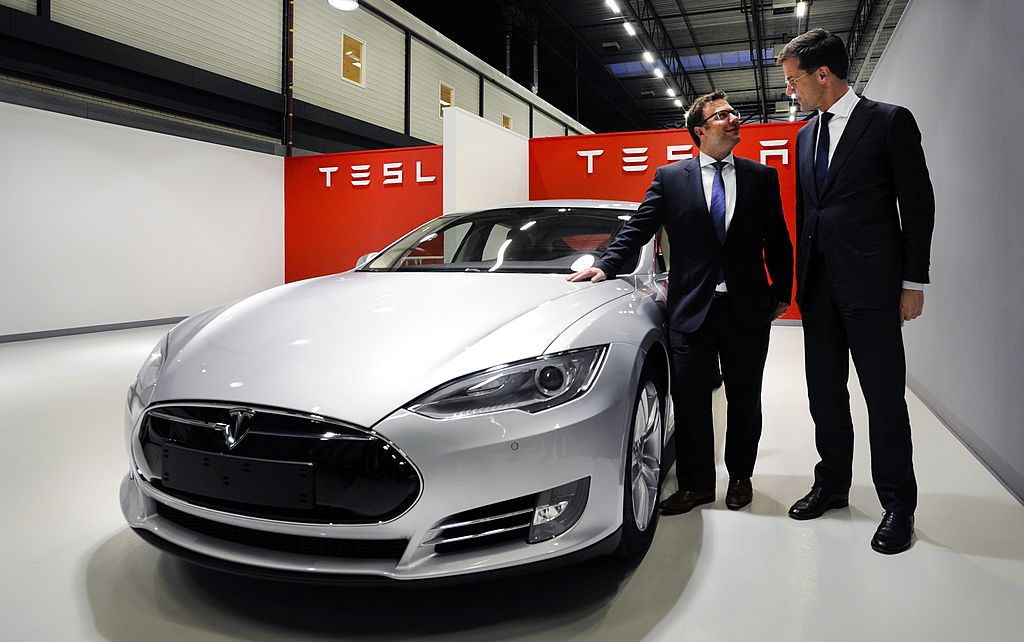May 27, 2025 — Berlin, Germany: Tesla, the world-renowned electric vehicle (EV) manufacturer led by Elon Musk, has seen a significant drop in its European sales, sparking industry concern and prompting strategic reassessment. According to recent data released for April 2025, Tesla’s vehicle deliveries across Europe have plummeted by 52.6% compared to the same month in 2024.
This dramatic downturn continues a worrying trend for the company, which has experienced a 46.1% sales decline in the first four months of 2025, totaling just 41,677 vehicles sold across the continent. Once considered the undisputed leader in the EV sector, Tesla is now facing intensified competition from traditional automakers and new entrants who are gaining traction in key European markets.
Rising Competition from European and Asian Automakers
A key factor contributing to Tesla’s decreasing sales in Europe is the intensified competition from automakers like Volkswagen, BMW, Renault, and China’s BYD, all of whom have ramped up their presence with more regionally tailored and competitively priced electric vehicles. These manufacturers have capitalized on strong regional demand by offering more localized models, competitive pricing, and government incentives aimed at boosting sustainable transportation.
Volkswagen, in particular, has gained a significant foothold with its ID series, providing models tailored to European preferences. Meanwhile, BYD, leveraging its robust supply chain and cost-efficient production, has successfully undercut Tesla’s pricing in several key markets, including Germany, France, and the Netherlands.
Challenges with Pricing, Supply Chain, and Local Preferences
Tesla’s global pricing strategy has also played a role in the slump. While the company initiated price cuts in some regions to stay competitive, these reductions have not been uniform across Europe, leading to customer uncertainty and affecting consumer confidence.
Moreover, supply chain disruptions—a lingering aftereffect of global geopolitical tensions and semiconductor shortages—have impacted Tesla’s ability to meet delivery targets. Unlike some European rivals who source and manufacture vehicles locally, Tesla still relies heavily on imports from its Giga Shanghai and Giga Texas facilities, creating logistical and cost disadvantages.
Cultural preferences also factor in. European consumers tend to favor compact vehicles, superior interior finishing, and advanced driver-assistance systems—all areas where competitors have made notable strides while Tesla continues to emphasize minimalistic design and software-led features.
Elon Musk’s Strategic Pivot and Reduced Political Focus
In response to the growing concerns, Elon Musk has recently reduced his political activities, including a pledge to cut back on campaign donations and focus more directly on Tesla’s operations. During the Qatar Economic Forum, Elon Musk remarked, “I think I’ve done enough politically,” signaling a shift in focus back to enhancing Tesla’s operational and business priorities.
Industry experts believe Musk’s renewed focus could help streamline decision-making and address critical gaps in Tesla’s European market strategy. However, they also warn that immediate results may be limited unless Tesla adapts more aggressively to regional demands.
Tesla’s Giga Berlin and Localized Production Strategy
Tesla’s Gigafactory Berlin, which opened with high expectations, has not yet delivered the volumes or localized models that could reverse the company’s fortunes in Europe. While it currently produces the Model Y, analysts say expanding the lineup to include smaller, more affordable vehicles designed specifically for European urban environments could prove vital.
Additionally, Tesla must contend with tightening EU emissions regulations, evolving safety standards, and increasing pressure from policymakers advocating for homegrown EV innovation and employment generation.
The Road Ahead: Recalibration or Further Decline?
To regain lost ground, Tesla may need to implement a multi-faceted strategy that includes:
- Developing region-specific models suited for European roads and driving preferences.
- Strengthening partnerships with European suppliers and regulators.
- Enhancing Giga Berlin’s output and diversifying its production capabilities.
- Enhancing customer support and expanding charging networks in markets where performance has lagged behind.
Despite the current downturn, Tesla still retains a strong brand presence and loyal customer base in Europe. If the company can swiftly adapt to changing market dynamics, there remains potential for a turnaround in the coming quarters.
Conclusion
Tesla’s significant sales decline in Europe underscores the shifting landscape of the global EV industry. With competitors innovating rapidly and regional dynamics evolving, the once-dominant EV giant faces a pivotal moment in its growth story. Whether Tesla can reclaim its momentum will depend on how effectively it addresses supply challenges, consumer expectations, and its competitive positioning in one of the world’s most demanding automotive markets.





